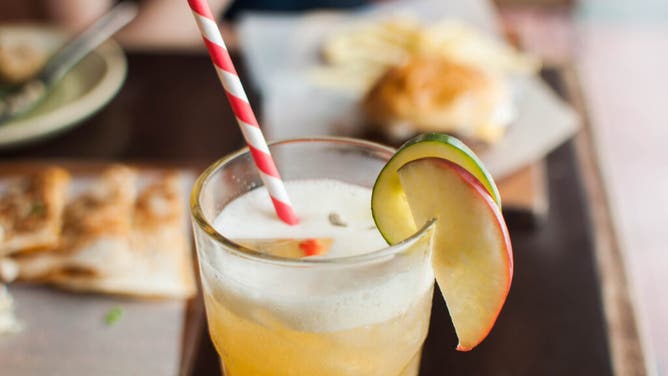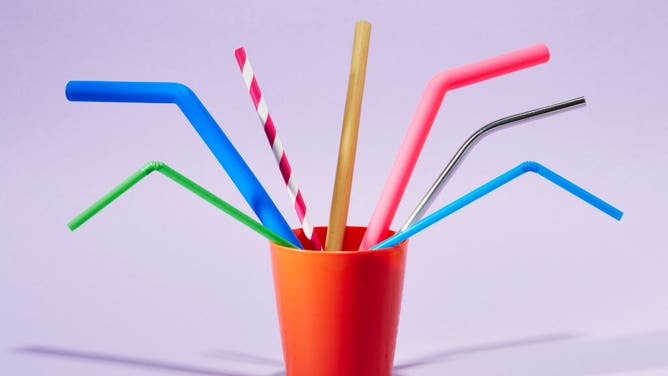Those 'Eco-Friendly' Paper Straws Actually Contain Toxic 'Forever Chemicals,' According To Study
One of the very few things we can all agree on: Paper straws suck.
No pun intended, of course.
But it's a scenario we know too well. You sit down at a beach bar and order an overpriced cocktail. It's cool, you're on vacation. But much to your dismay, the server brings that cocktail with a paper straw. You try to make the best of it, but the straw dissolves into your drink faster than you can say "Mai Tai." So you try to down the drink quickly, but your efforts are futile. It's just rum and slimy cardboard with an orange slice.
First world problems, sure. And, of course, we want to save the turtles.
But a new study found those "eco-friendly" paper straws actually aren't so eco-friendly after all. In fact, they contain toxic chemicals that may be worse for the environment than their reviled plastic counterparts.

"Straws made from plant-based materials, such as paper and bamboo, are often advertised as being more sustainable and eco-friendly than those made from plastic," Thimo Groffen, Ph.D., environmental scientist at the University of Antwerp, said in a statement.
"However, the presence of PFAS in these straws means that's not necessarily true."
PFAS are known as "forever chemicals" because they linger almost permanently in air, water and soil.
The researchers in this study sampled 39 brands of straws made of paper, bamboo, glass, stainless steel and plastic. Of those, 27 contained PFAS.
And the only material that was completely PFA-free? Steel.
The Push For Paper Straws
In 2021, the European Union placed a ban on single-use plastic, including plates, cutlery and straws. And several U.S. states are looking to follow suit.
But after this study, it appears maybe these efforts are all in vain.
Researchers found that paper straws were the most PFA-filled — with a whopping 90% containing the chemicals.
Meanwhile, bamboo straws (another "green alternative") clocked in second with 80%, followed by 75% of plastic straws, 40% of glass and none in steel straws.

The most prevalent PFA was perfluorooctanoic acid, which was banned globally in 2020. But some countries still manufacture it anyway.
Researches also found trifluoroacetic acid and trifluoromethanesulfonic acid. These are PFAS that easily dissolve in water — meaning you're probably drinking them along with that Mai Tai.
"The presence of PFAS in paper and bamboo straws shows they are not necessarily biodegradable," Groffen said.
By the way, Groffen warned these "eco-friendly" straws aren't actually recyclable, either.
So the fact remains that we all hate paper straws. And now the evidence agrees. But that's not going to stop major U.S. cities from pushing them anyway. Because we can't let scientific research get in the way of a good virtue signal. We learned that from COVID.
Drink from your paper straw. Wear your paper mask. Trust the science.